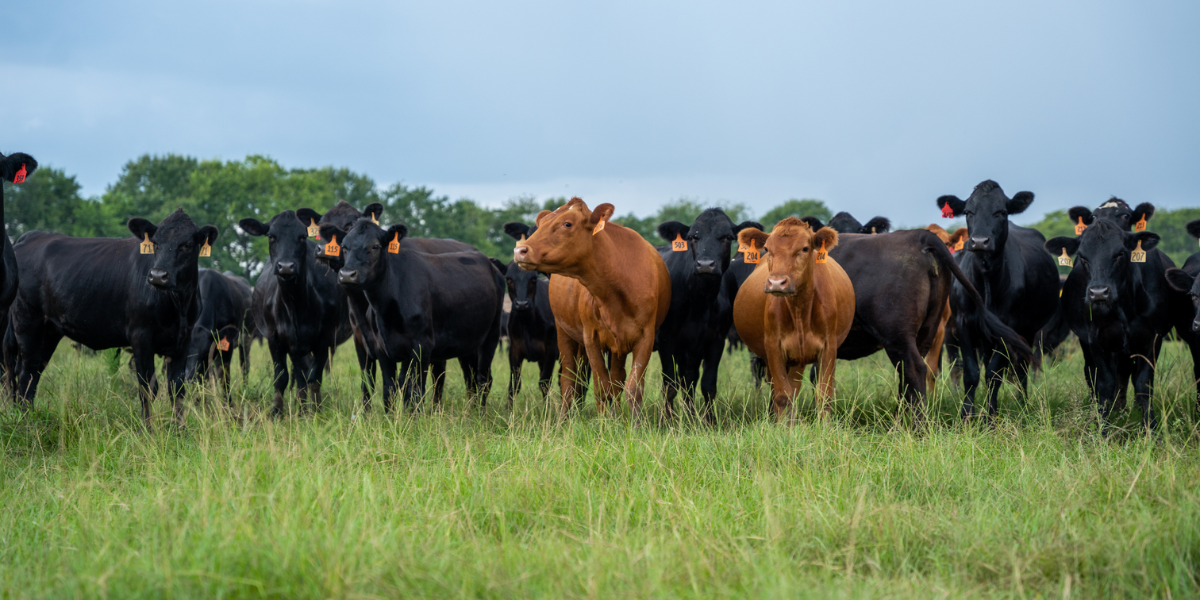 A lie that they got rich making people believe and a new lie that is going to make them even richer.
A lie that they got rich making people believe and a new lie that is going to make them even richer.
They = multi-national corporations, Silicon Valley, Wall Street, and the usual suspects.
You were lied to when you were told that cattle are destroying the Earth.
Unless you have been living under a rock for the last decade, you have heard the false narrative that "cattle are one of the major contributors to climate change." This is a lie that was intentionally taken out of context.
Though you have heard it on TV, read it in scientific journals, and even seen it taught at universities...it ain't true. It is junk science. It was easy to sell as truth because it can be proven that confinement-fed cattle are damaging to our environment. But it is not the animal; it is the industrial production system that the industry has chosen to utilize. Cattle, when raised properly, benefit the environment in many ways. In fact, as a 25-year practitioner of land regeneration, I can assure you that land that industrial farming practices have degraded cannot be cost-effectively healed without animal impact.
This junk science caught an unbelievable level of traction because of:
- The confusion surrounding the impact of industrially managed animals as opposed to the impact that should occur in natural cattle management.
- The misapplication of research technology by myopic reductionist scientists is probably funded by corporations that profit from the blasphemy of conventional meat production.
- The prejudice that was already present in the vegan community.
- The intentional use of the loud voices of corporations to disseminate this junk science in order to sell their plant-based meat.
- The lack of bandwidth of consumers to figure out who is lying to them in order to profit.
Similarly, you are currently being misled into believing that environmental degradation is only a function of how much carbon is in the atmosphere.
Carbon is an element on the periodic table. It is not inherently evil. In fact, a lot of our bodies are made of carbon. It is true that we currently have an excess of carbon in our atmosphere and that it needs to be removed. But it needs to be placed where it belongs - in our soil.
Industrial farming methods have broken the Cycles of Nature. Among these are the Carbon Cycle, the Energy Cycle, the Water Cycle, the Microbial Cycle, and the Mineral Cycle. There are almost certainly others, but my point is that the Carbon Cycle is only one of many natural cycles. And most importantly, no cycle is any more important than the others. They must all be functioning optimally for Nature to operate properly. As your heart is no more important than your brain, which is no more important than your liver...
We are being conditioned to believe that we are doomed if we don't get atmospheric carbon levels down. We may be.
But we need to get this carbon to the right place. It needs to be in our soil as organic matter, providing a healthy environment for microbes, soaking up excess precipitation, and providing a number of other functions that evolved to occur in a healthy ecosystem.
You watch out. When the sense of urgency to pull carbon down is whipped up high enough, the technocrats will offer us some costly technology to solve the problem. It will suck carbon out of the atmosphere, where we have too much, and store this carbon somewhere else. But the "somewhere else" will be a place where it is not supposed to be, and a lot of taxpayer dollars will find a new home.
This newly invented expensive technology will remove carbon from the atmosphere cheaper than sequestering it in our topsoil. And it will be easier to measure the results, but it will be misused technology. It will have unintentional consequences, just as all misused technology has.
Follow the money.
Will Harris

